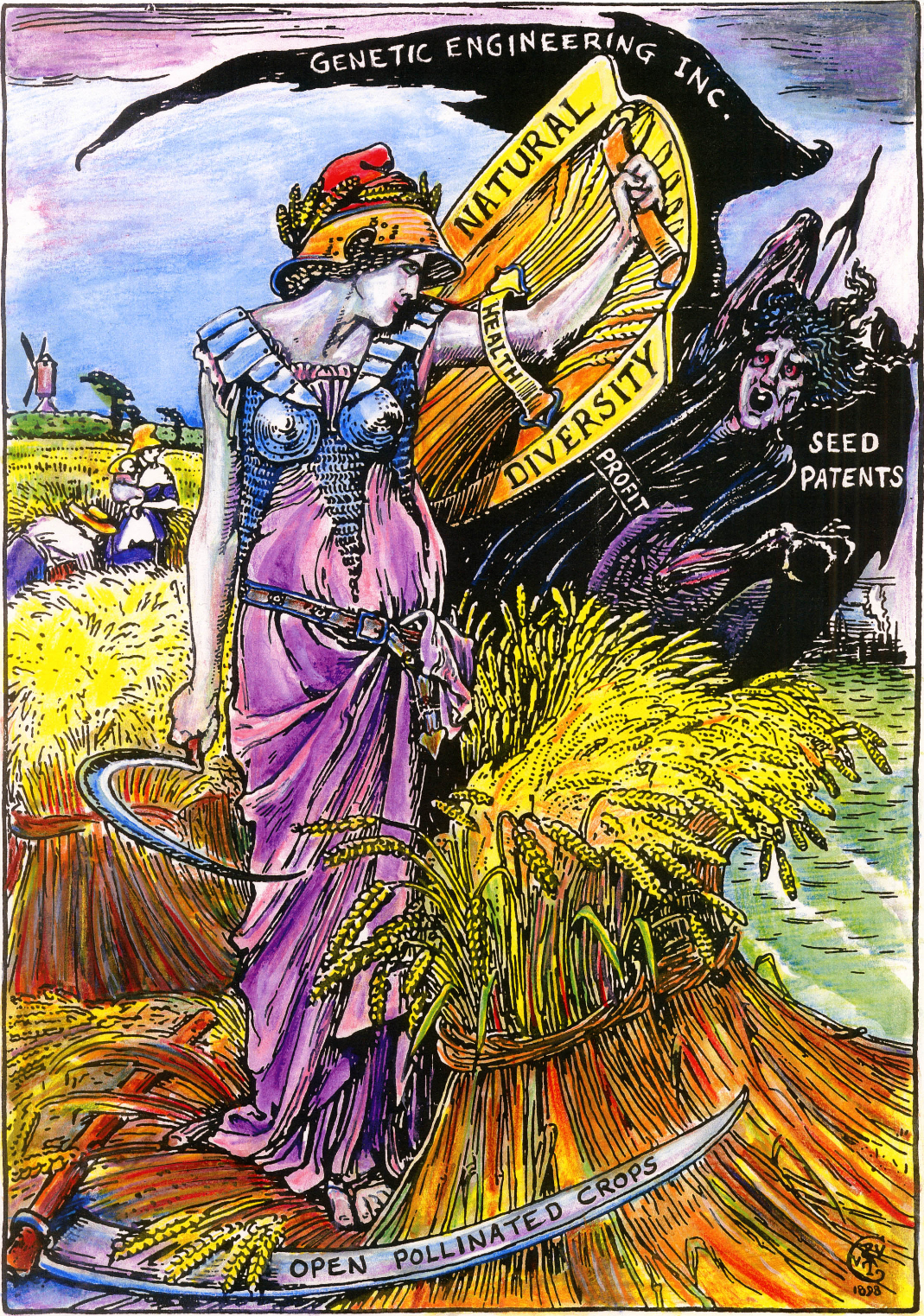 One statement that I hear the most when debating the GMO topic is that they are needed to feed the world. Now the fact is, people are still starving and GMOs have been around for more than 20 years which shows us that statement is a sham probably perpetuated by the very companies that create the products.
One statement that I hear the most when debating the GMO topic is that they are needed to feed the world. Now the fact is, people are still starving and GMOs have been around for more than 20 years which shows us that statement is a sham probably perpetuated by the very companies that create the products.
Can GMOs feed the world?
While this could be possible, there is no profit in it and, well do you think companies like Monsanto are in it for charity, (except for the tax write off maybe). When you look at what GMOs are doing to our bodies and to the soil of our planet, GMOs are unsustainable and downright destructive. They create super weeds, bankrupt farmers and contaminate other non GMO farms, pollute our water and soil. Nearly half of the world’s cereal production is used for feeding animals not people.
How do we feed the world then?
In 2011 the United Nations released a report that eco farming or agroecology is the best way to feed the world. What is agroecology? According to a news release by the UN “Agroecology applies ecological science to the design of agricultural systems they can help put an end to food crisis and address climate-change and poverty challenges. It enhances soils productivity and protects the crops against pests by relying on the natural environment such as beneficial trees, plants, animals and insects.”
Will it work?
“To date, agroecological projects have shown an average crop yield increase of 80% in 57 developing countries, with an average increase of 116% for all African projects,” says Olivier De Schutter UN Special Rapporteur on the right to food and author of the report. “Recent projects conducted in 20 African countries demonstrated a doubling of crop yields over a period of 3-10 years.” Ironically this report titled “Agro-ecology and the right to food” the right to food one of the basic human rights that the big corporations are trying to control. 1
How does it work?
Agroecology makes agriculture sustainable by removing the need for fossil fuels (oil and gas). It improves sustainability of agroecosystems by mimicking nature instead of industry. Agroecology is a science and a set of practices. It works by recycling nutrients and energy on the farm instead of relying on outside resources, and integrating crops and livestock for more diversity of species and genetic resources.
Simply interplant crops that repel insects and species that attract insects are planted away from crops.
“In Kenya, researchers and farmers developed the “push-pull” strategy to control parasitic weeds and insects that damage the crops. The strategy consists in “pushing” away pests from corn by inter-planting corn with insect-repellent crops like Desmodium, while “pulling” them towards small plots of Napier grass, a plant that excretes a sticky gum which both attracts and traps pests. The system not only controls pests but has other benefits as well, because Desmodium can be used as fodder for livestock. The push-pull strategy doubles maize yields and milk production while, at the same time, improves the soil.
In Japan, farmers found that ducks and fish were as effective as pesticide for controlling insects in rice paddies, while providing additional protein for their families. The ducks eat weeds, weed seeds, insects, and other pests, thus reducing weeding labour, otherwise done by hand by women, and duck droppings provide plant nutrients.” 2
Why is it not being more widely used?
You will never get big companies to invest in agroecology because there is no way to patent it which means there is no way to make profit from it. You know the proverb give a man a fish you feed him for a day; teach a man to fish and you feed him for a lifetime? That’s what agroecology is. The poor don’t need seed and chemicals they can’t even afford, they need to be taught how to use what nature has been using for millions of years.
What are the benefits?
Accessibility: Even the poorest farmers have access to supplies they need (Manure for fertilizer)
Food Balance: More diversified crops mean not just planting rice or corn ( carbohydrates ) but also adding fruits.
Sustainable: Adapts to climate change. Does not rely on fossil fuels. Methods improve topsoil, have higher field moisture and have less erosion. All by using barriers, crop rotation, ditches trees among other methods.
Empowerment: The poor and women benefit because the only access you really need is knowledge.
“KNOWLEDGE IS POWER” ~Francis Bacon
References:
- Press release, “Eco-Farming Can Double Food Production in 10 Years, says UN Report” March 2011. http://www.srfood.org/images/stories/pdf/press_releases/20110308_agroecology-report-pr_en.pdf ↩
- “Agroecology and the Right to Food” http://www.srfood.org/images/stories/pdf/officialreports/20110308_a-hrc-16-49_agroecology_en.pdf ↩